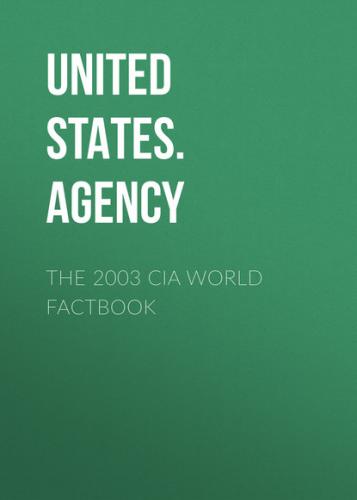convenience: Argentina 1, Bahrain 1, Belize 1, British Virgin
Islands 1, Bulgaria 1, China 8, Costa Rica 1, Cyprus 1, Egypt 6, El
Salvador 1, Germany 1, Greece 18, Hong Kong 3, Indonesia 2, Italy 1,
Japan 7, Lebanon 4, Liberia 4, Maldives 2, Marshall Islands 1,
Mexico 1, Nigeria 1, Norway 1, Panama 14, Philippines 1, Romania 2,
Russia 1, Saint Kitts and Nevis 3, Saint Vincent and the Grenadines
1, Singapore 24, South Korea 12, Spain 1, Syria 1, Taiwan 4,
Tanzania 1, Trinidad and Tobago 1, Turkey 2, Turks and Caicos
Islands 1, United Arab Emirates 6, UK 1, US 5, Vanuatu 1, Vietnam 1,
Virgin Islands (UK) 1 (2002 est.)
ships by type: bulk 18, cargo 140, chemical tanker 4, container 7,
livestock carrier 2, passenger 2, passenger/cargo 3, petroleum
tanker 55, refrigerated cargo 10, roll on/roll off 4, short-sea
passenger 4, specialized tanker 1
Airports:
115 (2002)
Airports - with paved runways: total: 12 2,438 to 3,047 m: 3 1,524 to 2,437 m: 2 914 to 1,523 m: 3 under 914 m: 4 (2002)
Airports - with unpaved runways: total: 103 1,524 to 2,437 m: 2 914 to 1,523 m: 18 under 914 m: 83 (2002)
Military Honduras
Military branches:
Army, Navy (including marines), Air Force
Military manpower - military age:
18 years of age (2003 est.)
Military manpower - availability:
males age 15–49: 1,594,266 (2003 est.)
Military manpower - fit for military service:
males age 15–49: 948,957 (2003 est.)
Military manpower - reaching military age annually:
males: 74,895 (2003 est.)
Military expenditures - dollar figure:
$35 million (FY99)
Military expenditures - percent of GDP:
0.6% (FY99)
Transnational Issues Honduras
Disputes - international:
in 1992, ICJ ruled on the delimitation of "bolsones" (disputed
areas) along the El Salvador-Honduras border, but they still remain
largely undemarcated; in 2002, El Salvador filed an application to
the ICJ to revise the decision on a section of bolsones; the ICJ
also advised a tripartite resolution to a maritime boundary in the
Golfo de Fonseca with consideration of Honduran access to the
Pacific; El Salvador claims tiny Conejo Island, not mentioned by the
ICJ, off Honduras in the Golfo de Fonseca; Honduras claims Sapodilla
Cays off the coast of Belize but agreed to creation of a joint
ecological park and Guatemalan corridor in the Caribbean in the 2002
Belize-Guatemala Differendum; Nicaragua filed a claim against
Honduras in 1999 and against Colombia in 2001 at the ICJ over a
complex maritime dispute in the Caribbean Sea
Illicit drugs:
transshipment point for drugs and narcotics; illicit producer of
cannabis, cultivated on small plots and used principally for local
consumption; corruption is a major problem; some money-laundering
activity
This page was last updated on 18 December, 2003
======================================================================
@Hong Kong
Introduction Hong Kong
Background:
Occupied by the UK in 1841, Hong Kong was formally ceded by China
the following year; various adjacent lands were added later in the
19th century. Pursuant to an agreement signed by China and the UK on
19 December 1984, Hong Kong became the Hong Kong Special
Administrative Region (SAR) of China on 1 July 1997. In this
agreement, China has promised that, under its "one country, two
systems" formula, China's socialist economic system will not be
imposed on Hong Kong and that Hong Kong will enjoy a high degree of
autonomy in all matters except foreign and defense affairs for the
next 50 years.
Geography Hong Kong
Location:
Eastern Asia, bordering the South China Sea and China
Geographic coordinates:
22 15 N, 114 10 E
Map references:
Southeast Asia
Area:
total: 1,092 sq km
water: 50 sq km
land: 1,042 sq km
Area - comparative:
six times the size of Washington, DC
Land boundaries: total: 30 km border countries: China 30 km
Coastline:
733 km
Maritime claims:
territorial sea: 3 NM
Climate:
tropical monsoon; cool and humid in winter, hot and rainy from
spring through summer, warm and sunny in fall
Terrain:
hilly to mountainous with steep slopes; lowlands in north
Elevation extremes:
lowest point: South China Sea 0 m
highest point: Tai Mo Shan 958 m
Natural resources:
outstanding deepwater harbor, feldspar
Land use:
arable land: 5.05%
other: 93.94% (1998 est.)
permanent crops: 1.01%
Irrigated land:
20 sq km (1998 est.)
Natural hazards:
occasional typhoons
Environment - current issues:
air and water pollution from rapid urbanization
Environment - international agreements: party to: Marine Dumping (associate member), Ship Pollution (associate member)
Geography - note: more than 200 islands
People Hong Kong
Population:
7,394,170 (July 2003 est.)
Age structure:
0–14 years: 17.3% (male 680,973; female 599,309)
15–64 years: 71.7% (male 2,619,929; female 2,679,430)
65 years and over: 11% (male 375,058;
